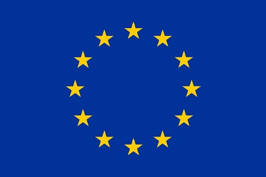By: EuroAgeism
EuroAgeism aims to ‘set a gold standard for doctoral programs by advocating the integration of science and policy’. To achieve this ambitious aim it has devoted Work Package (WP5) to activities that will help Early Stage Researchers (ESRs) develop the knowledge, skills and experience that are necessary so that their research has an impact on policy development at international, national and local levels.
From the outset ESRs have been asked to think about the policy implications of their research and to identify groups and stakeholders they would like to disseminate their recommendations to. Each of the projects undertaken by EuroAgeism ESRs has a unique contribution to make to the policy landscape. Additionally, taken together the scientific conclusions of ESRs can shape policy change. This is why in the course of the project each ESR will develop at least one policy paper as part of a dedicated Euroageism policy brief series. Additionally, ESRs are encouraged to explore synergies in their projects and work collaboratively to develop joint recommendations for policy makers.
Solid scientific results alone are not enough to convince a policy audience. ESRs need to learn how to translate their outcomes into policy solutions. They also need to have plenty of opportunities to disseminate the proposed policy options. EuroAgeism has therefore planned a series of activities to allow ESRs to develop clear, evidence-based, analysis-driven recommendations. First, as a consortium we have gathered a list of useful resources on how to write efficient policy papers. Additionally, the upcoming training school in Poland will include a dedicated session that will help ESRs develop the necessary skills to discuss the policy dimensions of their research as well as to include practical solutions to societal problems in policy briefs. Once ESRs are better equipped with the necessary capacities and tools, they will need to expand their network of contacts and be exposed to more policy debates. To increase the number of occasions when ESRs can have hands-on experience with science-policy interface, we are mapping the most relevant policy events across Europe. Finally, at the end of the project, ESRs will have the opportunity to present their policy recommendations to EU stakeholders during an event they will organise in Brussels.
In these ways EuroAgeism lives up to its commitment to move beyond describing the problems, by drawing policy-relevant conclusions.


